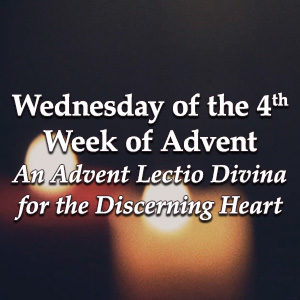Podcast: Play in new window | Download (Duration: 10:23 — 7.3MB) | Embed
Subscribe: Apple Podcasts | Spotify | Amazon Music | Android | Pandora | iHeartRadio | JioSaavn | Podchaser | Gaana | Podcast Index | Email | TuneIn | Deezer | Anghami | RSS | More
Saturday of the 4th Week of Advent – An Advent Lectio Divina for the Discerning Heart
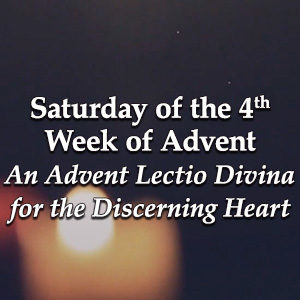
As you begin, take a deep breath and exhale slowly. For at least the next few moments, surrender all the cares and concerns of this day to the Lord.
Say slowly from your heart “Jesus, I Trust In You…You Take Over”
Become aware that He is with you, looking upon you with love, wanting to be heard deep within in your heart…
From the Holy Gospel of St. Luke 1:67-79
John’s father Zechariah was filled with the Holy Spirit and spoke this prophecy:
‘Blessed be the Lord, the God of Israel
for he has visited his people, he has come to their rescue
and he has raised up for us a power for salvation
in the House of his servant David,
even as he proclaimed,
by the mouth of his holy prophets from ancient times,
that he would save us from our enemies
and from the hands of all who hate us.
Thus he shows mercy to our ancestors,
thus he remembers his holy covenant
the oath he swore
to our father Abraham
that he would grant us, free from fear,
to be delivered from the hands of our enemies,
to serve him in holiness and virtue
in his presence, all our days.
And you, little child,
you shall be called Prophet of the Most High,
for you will go before the Lord
to prepare the way for him,
to give his people knowledge of salvation
through the forgiveness of their sins;
this by the tender mercy of our God
who from on high will bring the rising Sun to visit us,
to give light to those who live
in darkness and the shadow of death
and to guide our feet
into the way of peace.’
What word made this passage come alive for you?
What did you sense the Lord saying to you?
Once more give the Lord an opportunity to speak to you:
John’s father Zechariah was filled with the Holy Spirit and spoke this prophecy:
‘Blessed be the Lord, the God of Israel
for he has visited his people, he has come to their rescue
and he has raised up for us a power for salvation
in the House of his servant David,
even as he proclaimed,
by the mouth of his holy prophets from ancient times,
that he would save us from our enemies
and from the hands of all who hate us.
Thus he shows mercy to our ancestors,
thus he remembers his holy covenant
the oath he swore
to our father Abraham
that he would grant us, free from fear,
to be delivered from the hands of our enemies,
to serve him in holiness and virtue
in his presence, all our days.
And you, little child,
you shall be called Prophet of the Most High,
for you will go before the Lord
to prepare the way for him,
to give his people knowledge of salvation
through the forgiveness of their sins;
this by the tender mercy of our God
who from on high will bring the rising Sun to visit us,
to give light to those who live
in darkness and the shadow of death
and to guide our feet
into the way of peace.’
What did your heart feel as you listened?
What did you sense the Lord saying to you?
Once more, through Him, with Him and in Him listen to the Word:
John’s father Zechariah was filled with the Holy Spirit and spoke this prophecy:
‘Blessed be the Lord, the God of Israel
for he has visited his people, he has come to their rescue
and he has raised up for us a power for salvation
in the House of his servant David,
even as he proclaimed,
by the mouth of his holy prophets from ancient times,
that he would save us from our enemies
and from the hands of all who hate us.
Thus he shows mercy to our ancestors,
thus he remembers his holy covenant
the oath he swore
to our father Abraham
that he would grant us, free from fear,
to be delivered from the hands of our enemies,
to serve him in holiness and virtue
in his presence, all our days.
And you, little child,
you shall be called Prophet of the Most High,
for you will go before the Lord
to prepare the way for him,
to give his people knowledge of salvation
through the forgiveness of their sins;
this by the tender mercy of our God
who from on high will bring the rising Sun to visit us,
to give light to those who live
in darkness and the shadow of death
and to guide our feet
into the way of peace.’
What did your heart feel as you prayed?
What do you hope to carry with you from this time with the Lord?
Our Father, who art in heaven,
hallowed be thy name.
Thy kingdom come.
Thy will be done on earth, as it is in heaven.
Give us this day our daily bread,
and forgive us our trespasses,
as we forgive those who trespass against us,
and lead us not into temptation,
but deliver us from evil.
May the Lord bless us, and keep us from all evil, and bring us to everlasting life.
Amen
Excerpt from THE JERUSALEM BIBLE, copyright (c) 1966 by Darton, Longman & Todd, Ltd. and Doubleday, a division of Penguin Random House, Inc. Reprinted by Permission.

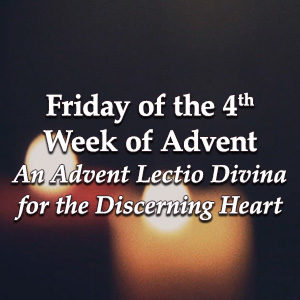

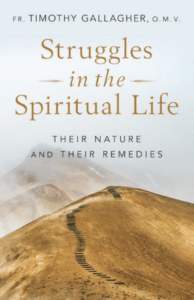
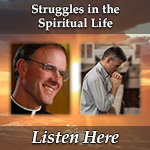

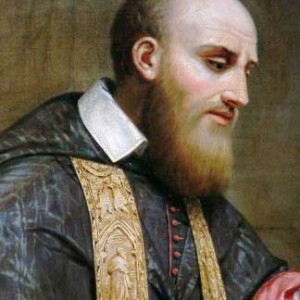
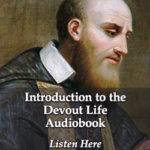
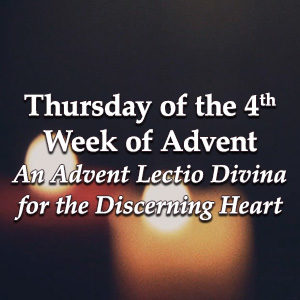
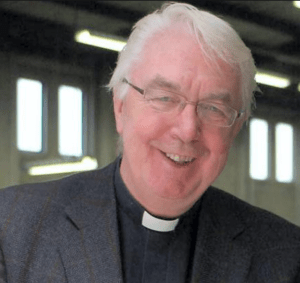 Fr. Vincent Twomey – The Dynamics of Liturgy, Part 2 on Inside the Pages w/ Kris McGregor
Fr. Vincent Twomey – The Dynamics of Liturgy, Part 2 on Inside the Pages w/ Kris McGregor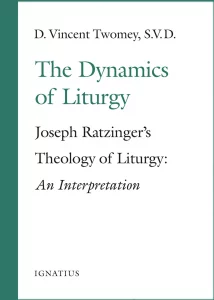 You can find the book
You can find the book 


